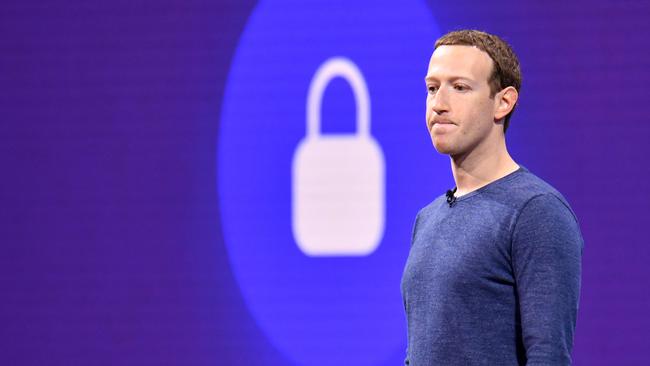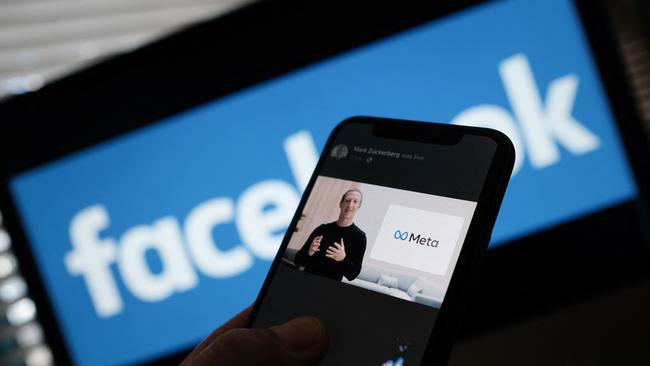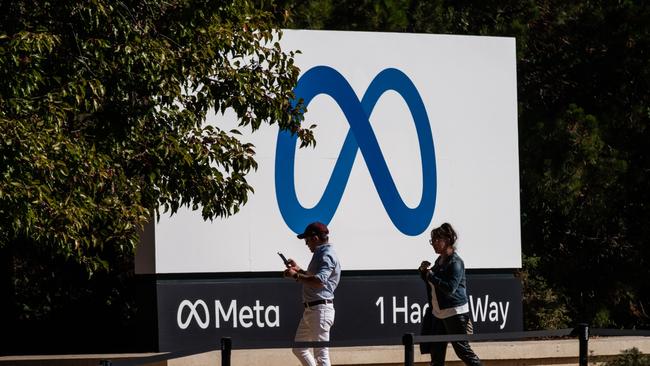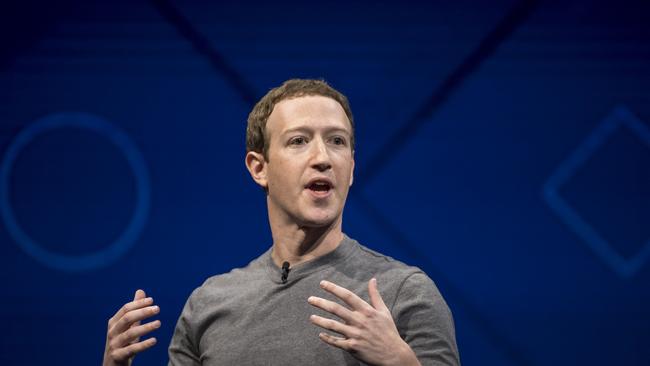Mark Zuckerberg gets lost in space on his risky mission to metaverse
Frustration at the Meta chief’s focus on virtual reality is growing.

From the outset, the founder of the world’s most powerful social media company wanted everyone to know who was running the show. A single line at the bottom of “the facebook”, as it was known in February 2004, made it clear that it was “a Mark Zuckerberg production”.
Each act has proven bigger, and more profitable, than the last. Firstly, Facebook dropped the “the” and added myriad features, from the ability to post statuses to poking friends. Secondly, Zuckerberg started work on building an advertising powerhouse. Then Facebook ascended to the ranks of Big Tech, assembling a network of online brands and pinching hallmarks from its rivals.
But 17 years after its creation in a Harvard University dorm room, political scrutiny intensified as alarm over the product grew and competition mounted: Facebook’s latest act appeared set to be written by its staunchest critics.
Zuckerberg, against the wall, pivoted the business towards the internet’s next generation. Meta Platforms, as it was rechristened last year, embarked upon an audacious – and extraordinarily expensive – attempt to build the metaverse, a virtual realm where users can interact without physically being in the same space.

Meta believes that success here will be lucrative. The global metaverse economy could be worth more than $US3 trillion ($4.6 trillion) globally within a decade, according to research Meta commissioned by the Analysis Group, an economic consultancy.
In another report the consultant McKinsey estimated that it “may generate up to dollars 5 trillion in impact” by 2030, the equivalent of the Japanese economy.
However, Zuckerberg, 38, faces questions about whether he is the man, and Meta the company, to unlock this new frontier. “Can he catch lightning in a bottle a second time,” Enders, the media analysts, asked in a recent paper. “And does having a [$US] 500-billion [$766bn] bottle make this task easier or harder?”
Meta is not alone in chasing this concept, which has become a holy grail for businesses around the world. As Herman Narula puts it in his new book, Virtual Society: “The computers of the future can create worlds that are more detailed than the one we know today. We are approaching a new epoch in human history, one in which the possibilities of our lives will diverge from the limits of our bodies.”

The vision may be exciting but the time and money that Meta is spending on its execution has set off alarm bells on Wall Street, where impatience is rising. In the 11 months since Facebook announced its new name, the company’s shares have fallen 55 per cent. This year its chief executive has seen his personal fortune, largely tied up in stock, drop by $US72.2bn to $US53.3bn, according to Bloomberg.
Some analysts have started to question the wisdom of focusing on a wholly new enterprise when Meta’s apps – Facebook, Instagram, WhatsApp and Messenger – face an array of challenges and continue to generate 98 per cent of its revenue.
Joseph Teasdale, the head of technology at Enders Analysis, said: “Meta wanted to invest in the metaverse while the core business was still churning out cash, but pressure from its competitors and the subsequent revenue decline means it is now under pressure to clamp down on these rather over-the-top experiments to develop a virtual world that no one wants to spend time in.”
As it ploughs eye-watering sums into the metaverse, executives at Meta say that the endeavour stands to lose significant amounts of cash for at least several years. Its Reality Labs business, which produces its virtual and augmented reality hardware and software, lost dollars $US10.2bn in 2021, while the company’s social media and messaging platforms generated $US56.9bn in profit.
However, a Meta spokesman said: “We did not lose $US10 billion. We chart this as an investment with significant returns over the longer term.”

“It’s too long a time frame for Wall Street,” said Laura Martin, an analyst at Needham. “Money moves over 12 months. An investment today that’s going to pay off in 2030 is troublesome for us.”
The company’s first annual drop in quarterly revenue, reported this summer, sparked several accusations that the metaverse really amounted to a costly distraction just as the advertising market was slowing.
Apple’s privacy changes made it markedly more difficult to track users and meanwhile TikTok continues its acceleration into social media’s top tier.
Zuckerberg’s concentration beyond social media is “telling us that he doesn’t believe in his core business”, added Martin.
“They’ve been caught with their pants down,” said Neil Campling, head of technology research at Mirabaud Securities, who suggested that Meta was in the midst of an identity crisis. “It doesn’t know what it wants to be.”
Regardless of concern on Wall Street or among investors, with about 54.4 per cent of the voting power Meta’s founder, chairman and chief executive can pretty much do as he pleases. Even after the company found itself at the heart of a painful tech rout this year, Zuckerberg has stuck to his guns.
Sure, there are critics – “but the question has to be asked: who cares?” said Raj Shah, a managing partner at the digital consultancy Publicis Sapient and a shareholder in Meta. “Does Zuckerberg care? I look back at what Bezos did with Amazon. I look at what Musk did with Tesla and SpaceX. There were always these valleys of disillusionment.”
The graphics of the product have also been mocked for being crude and comical, in particular Zuckerberg’s avatar.

Then there’s the hardware. Unlike other platforms such as Roblox, Meta’s metaverse is entered via headsets. It has released two sets of virtual reality goggles: the latest priced at $US399. Its newest version is expected imminently and is rumoured to cost $US1000.
Shah, who described himself as “fifty-fifty” on whether Zuckerberg’s vision was the right one, expects engagement with the metaverse to be widespread within five to 10 years. The software will take less time to advance than the hardware, such as virtual reality glasses, he said, comparing Meta’s current suite of products to BlackBerries before Apple unveiled the iPhone in 2007 and turbocharged the smartphone market.
A Meta spokesman said: “We don’t comment on the fluctuations of our stock price but rather focus on executing our long-term vision for the company, which we are very excited and optimistic about.”
Meta will update investors and developers next month at Connect, the company’s annual metaverse conference. The question is whether this latest Zuckerberg production will be remembered for its journey into this brave new world or its struggle in the real one.
Rapid rise of TikTok has Facebook reeling
In July Mark Zuckerberg painted a gloomy picture for Meta investors when he reported the company’s first year-on-year quarterly revenue decline of 1 per cent.
“We seem to have entered an economic downturn that will have a broad impact on the digital advertising business,” he said.
Part of that decline was less about the economy and more about the rise of TikTok, its rival for advertising income and the valuable youth market. While the video app, owned by ByteDance, of China, has half the number of users as Facebook, a billion people outside China, the amount of time they spend watching the videos has overtaken every other app. In June this year American users spent 23 per cent less time on Meta platforms than in June 2019 and 37.5 per cent less than at the peak of the pandemic in April 2020.
TikTok’s advertising revenue rose by more than 50 per cent in the first half of this year, compared with Meta’s, which rose by about 20 per cent, according to Enders Analysis.
Debra Aho Williamson, an analyst at the research group Insider Intelligence, stressed that Meta, which still controls 21.4 per cent of the digital ad market, versus TikTok’s 1.9 per cent, remains way ahead of all its rivals other than Alphabet, the owner of Google and YouTube. “Meta still has a huge head start,” Williamson said.
Sir Martin Sorrell, the advertising executive whose new business S4 Capital specialises in digital marketing, said Meta remained a force to be reckoned with: “Beating up Meta is overdone. Yes, TikTok has made huge inroads but Facebook and Instagram create value in connecting people emotionally and I think in the next few quarters it will perform better.”

In response to the TikTok threat Meta has introduced short films on Facebook and Instagram called “Reels” but they have not quite got the same addictive stardust. A leaked document obtained by The Wall Street Journal revealed that Instagram users are spending 17.6 million hours a day watching Reels, less than one tenth of the 197.8 million hours of TikTok users.
Katy Howell, chief executive of Immediate Future, a social media agency, said: “TikTok is also seen as more authentic. It has definitely got Gen Z on board.”
The move from images to video on Instagram has also been unpopular with users. It is “a more disruptive format for Facebook and Instagram to incorporate”, said Enders. “Instagram users are more comfortable sharing photos than videos, while smaller advertisers can struggle to create video ads.”
Putting a greater emphasis on content generated by strangers costs Meta more money, as does the engineering involved in changing the algorithm to reflect this.
Going far beyond changing its business strategy, The Wall Street Journal reported earlier this year that Meta had hired a Republican Party consulting firm to “orchestrate a nationwide campaign” against TikTok. A Meta spokesman told the paper: “We believe all platforms, including TikTok, should face a level of scrutiny consistent with their growing success.”




To join the conversation, please log in. Don't have an account? Register
Join the conversation, you are commenting as Logout